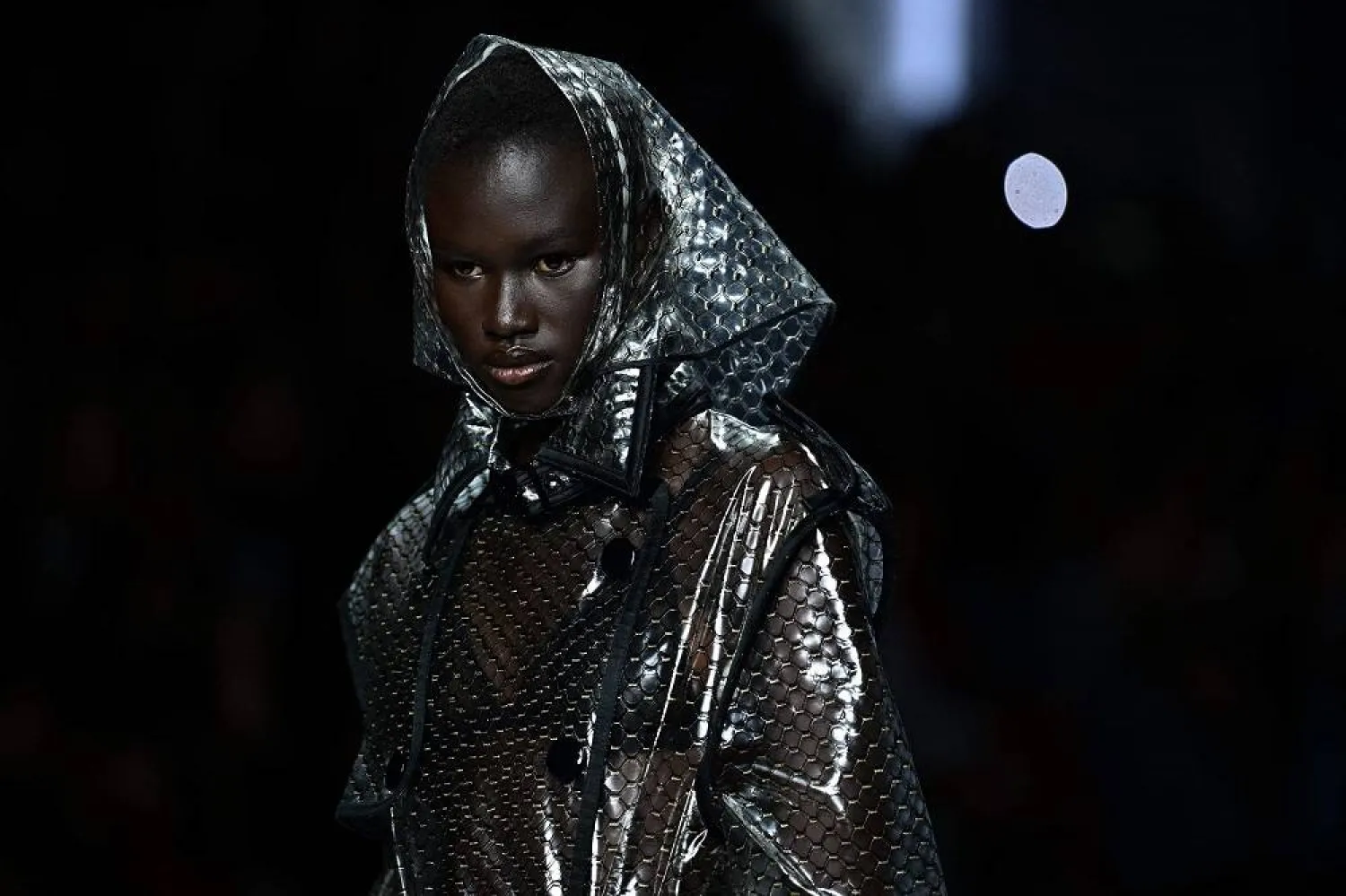Just days before her third runway show, French designer Pauline Dujancourt was riding a wave of excitement and nerves.
The 31-year-old admitted she had begun having strange, nightmarish dreams ahead of her big moment at London Fashion Week on Sunday.
The British capital will once again host its Autumn/Winter fashion week from Thursday to Monday, after New York's bonanza and before the catwalk carousel moves to Milan and Paris.
London, known for its raw creative energy and rising talents, is where Dujancourt launched her label in April 2022 after training at the renowned arts and design school Ecole Duperre in Paris, and fashion hub Central Saint Martins in London.
She and her team began work in November on her autumn-winter 2026/27 collection to be unveiled before some 450 guests -- journalists, buyers and VIP clients.
For designers, everything comes down to those few precious minutes on the catwalk. It's no wonder nervousness mixes with the creative buzz.
"I go through every emotion," Dujancourt told AFP with a smile. "Some days I'm super excited, full of ideas, and others I'm like: why did I pick this color, this fabric?"
The questions and worries snowball: "Will everyone be on time? Will there be last-minute hitches on the day?"
In recent weeks, she has been running her daily schedule with military precision.
Dujancourt works year-round with four assistant designers, but the team swells to around 50 people ahead of the show.
And she works with a community of knitters in Lima, Peru, with handknitting -- "something that my grandmother taught me as a child" -- being a hallmark of her garments.
"She was so skillful and so humble about it. And no one really realized how much work it takes and how much technique it takes," she said.
Known for her sensual, airy knitwear, Dujancourt was a finalist for the LVMH Prize, won Elle UK's young talent award, and is supported by the British Fashion Council.
Her clients span the globe from Japan to the United States, France and the UK, with regular requests for wedding dresses.
Her new collection pays tribute to women persecuted during historical witch hunts.
"I really want to celebrate the fact that there are so many women around the world who are working so humbly on domestic skills ... like sewing, hand knitting," she said.
Two weeks before the show, young seamstresses were crocheting floral motifs in mohair and Japanese metallic thread at a south London studio overlooking the Thames river and Big Ben.
Workers were hunched over their desks pouring over designs, with the looks still "in pieces".
Then comes the moment when everything is assembled. "It's the magical stage, when the clothes start to come alive," she said, her blue eyes lighting up her face framed by long dark hair.
Less than a week before the show, fittings begin with an in-house model, followed by the castings to find the right models.
On the eve of the show come final fittings, hair and make-up tests. And finally, on Sunday morning, the full rehearsal.
Show day always brings surprises. At Dujancourt's last catwalk in September, several models arrived extremely late, held up by another show.
"They turned up still wearing the other show's make-up. We had to dress them and redo everything ... I nearly died," she recalled.
What is her worst nightmare? A model tripping or garments ripping in front of the cameras.
"I once dreamt I'd forgotten to get dressed before coming out to greet the audience -- that would be a bit embarrassing," she joked.
Around 25 outfits will strut the catwalk on Sunday, a moment that "goes by in a flash".
Afterwards comes the crash.
"We barely see it happening ... because we are backstage in the madness and the chaos of it," she said.
But then it's finished "and there's a bit of baby blues afterwards," as she comes down off the adrenaline rush.
Dujancourt heads to Paris after London Fashion Week to meet buyers, before work begins again for her next show, in September.









